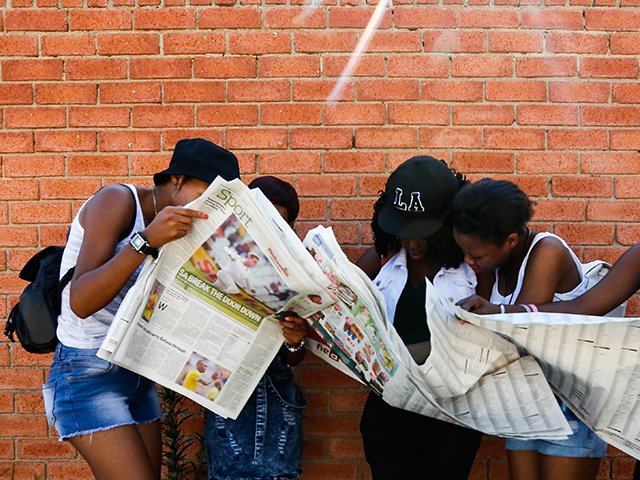Matric enrolment drops in 2017: Education report
Updated | By Lethiwe Mdluli
With the matric exams drawing closer, KZN education officials have set the target of a 76% pass rate.

A blow came when the Department of Basic Education released its progress report that found that enrolment for 2017 had fallen. The department reports that there are 636 814 registered full-time and 161 475 part-time candidates in the 2017 examinations - 37 000 less than 2016 in terms of full-time enrolment.
KwaZulu-Natal and Gauteng have the largest enrolments with 169 023 and 112 164 respectively. Limpopo has 110 639 while Eastern Cape registered 92 755 candidates for the 2017 exams. Newswatch spoke to education expect, Nola Payne from the Independent Institute of Education about the cause of the decline in numbers.
Payne says the country's economy could also have an impact.
"It is troubling because South Africa needs an educated workforce to improve the economy in South Africa. South Africa already has a shortage of workers in various sectors e.g. the trade fields (electricians, plumbers etc.), Engineering, IT, Health Sciences and the Financial sector amongst others. With fewer matriculants, there will be reduced registrations at higher education institutions which in turn will result in fewer graduates going out into the workplace. There are a number of issues, and in my opinion, a few that could be causing the decline and it would a combination of factors – not only one.
The economy could be an influencing factor - youngsters are encouraged to leave school early to help support the family financially, there is a history of a poor pass rate of public school matriculants.- Nola Payne
"Those that do matriculate - their employment prospects are poor. It can be perceived that a matric isn’t meaningful to those learners who are not planning on studying further. In private schooling, there is also a noted decline of learners which has been identified as more families emigrating before their children complete schooling. Learners moving from doing the National Senior Certificate to other curricula e.g. home schooling, IEB, Cambridge."
ALSO READ: KZN Education aims for 76% matric pass rate
Payne also shared some pointers on how the Department of Basic Education can try to up their numbers.
• Improve the early childhood education to better prepare learners for academic assessments in high school and ultimately matric.
• Study skills must be introduced at the early stages of schooling to equip learners to study effectively in order to produce matriculants who are successful in their exams and passionate about learning.
• Early intervention is needed to inform learners of career progression/planning and what needs to be achieved in order to be contributors to the SA economy.
• The misconception that degrees are the only options available to study further needs to be discussed with parents and learners and the importance of manual trades (electricians, plumbers, mechanics etc.) must also be emphasised along with the opportunities for trades people to be entrepreneurial and financially secure. Parents must become more involved in the schools and their children’s education as they are the biggest influencers in their children’s lives.
• Upgrade the schools to a minimum standard which includes building structures, libraries, laboratories, textbooks etc.
She says there is no short-term solution to solving the issue the country is faced with, saying learners entering the schooling system in Grade 1 should be nurtured to ensure they are successful matriculants.
"Get youngsters passionate about learning and wanting to learn more. Education is not only the responsibility of the teachers and government - parents need to be more involved and entrench a culture in their families of education - the importance of it and the opportunities it can provide. We need to listen to the communities, they know what the shortcomings are in their communities and schools. These need to be addressed, learners don’t have a lack of respect for the school infrastructure and the learning environment. A pleasant environment is motivating in itself."
ALSO READ: 51 days until matric finals
NSC Examinations are set to start on October 24 and conclude on November 29, 2017. KZN has been gearing up this year with officials launching the winter schools programme that had extra classes for learners over the holidays.
Show's Stories
-
Carol Ofori met DJ Tira over the weekend
Carol Ofori chatted briefly with DJ Tira this weekend about the robbery ...
Carol Ofori an hour ago -
Single Pringle? Here's how you cook for one in KZN
Crackers and polony for dinner? Or perhaps a full spread? East Coast Bre...
East Coast Breakfast 3 hours ago